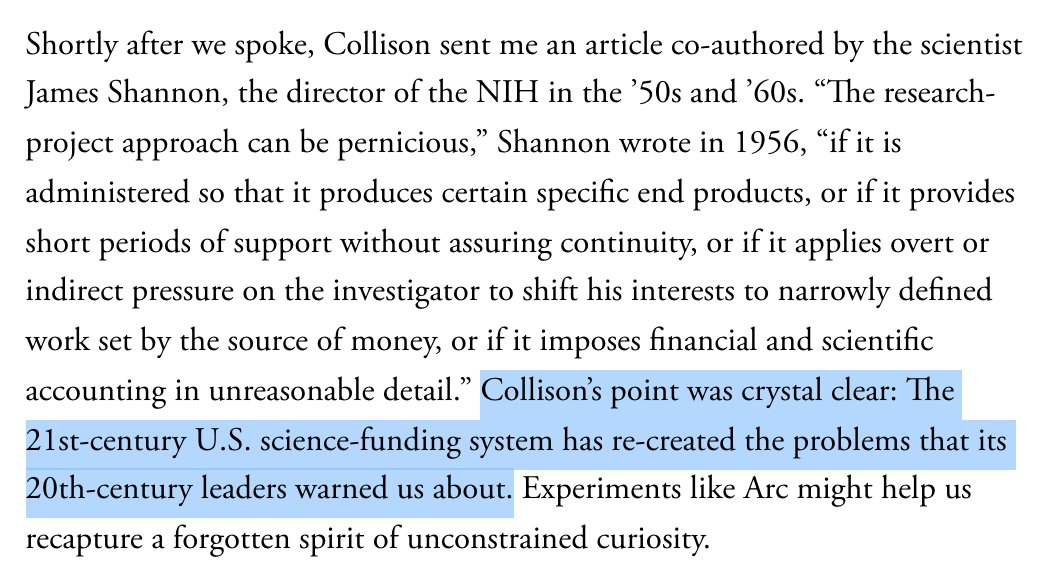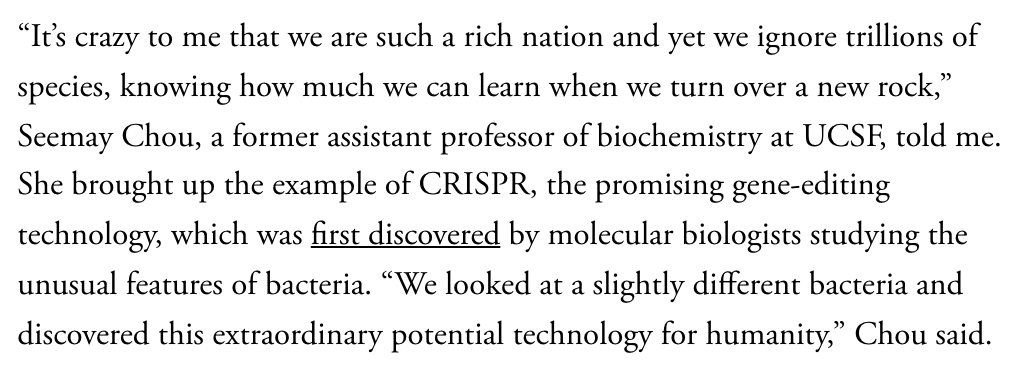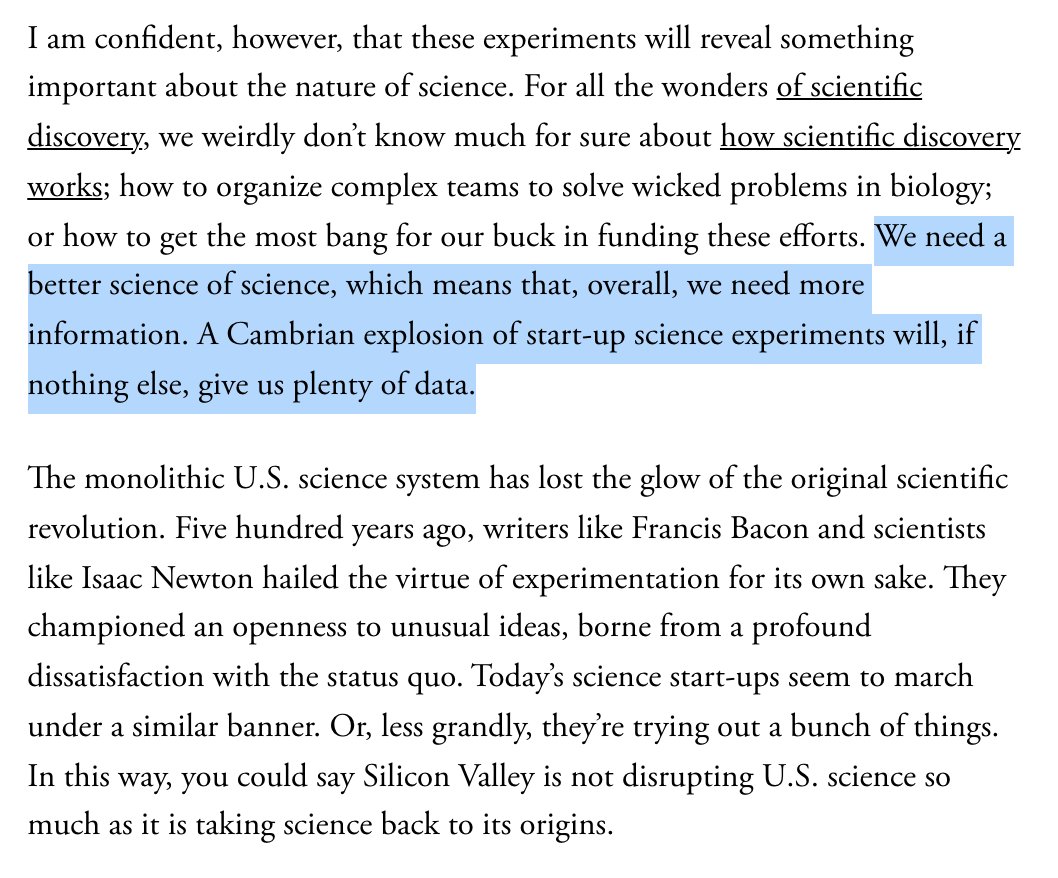
Abundance requires innovation.
Innovation begins with science.
But scientific funding in the U.S. is broken—it's too slow, risk-averse, and old.
I wrote about a surprising coalition of tech founders and star scientists who are trying to fix it.
theatlantic.com/ideas/archive/…
Innovation begins with science.
But scientific funding in the U.S. is broken—it's too slow, risk-averse, and old.
I wrote about a surprising coalition of tech founders and star scientists who are trying to fix it.
theatlantic.com/ideas/archive/…
What's the problem with U.S. scientific funding?
There are 4.
1. The trust problem
2. The specialization problem
3. The silo problem
4. The experiment problem
There are 4.
1. The trust problem
2. The specialization problem
3. The silo problem
4. The experiment problem
1. The trust problem
Liberals say "trust science!" but our science-funding programs don't trust scientists. We wrap them in rules that restrains their most novel research.
A new solution: ARC's open-ended, no strings attached funding (via @SKonermann, @patrickc, & @pdhsu)
Liberals say "trust science!" but our science-funding programs don't trust scientists. We wrap them in rules that restrains their most novel research.
A new solution: ARC's open-ended, no strings attached funding (via @SKonermann, @patrickc, & @pdhsu)

2. The specialization problem
Against the advice of 20th c scientists, the U.S. throws our experts into an arms race for scarce funding, taking up to 40% of their time. So, we train biologists to specialize in grant writing.
Solution: Fund people > projects.
Against the advice of 20th c scientists, the U.S. throws our experts into an arms race for scarce funding, taking up to 40% of their time. So, we train biologists to specialize in grant writing.
Solution: Fund people > projects.

There is also an age bias.
The avg age of 1st-time NIH grantees is 42 and rising, and scientists <35yo receive less than 5% of funding. But paradigm shifts in science (cf. Einstein) often come from young minds.
Solution: Fund more young visionaries @alexeyguzey
The avg age of 1st-time NIH grantees is 42 and rising, and scientists <35yo receive less than 5% of funding. But paradigm shifts in science (cf. Einstein) often come from young minds.
Solution: Fund more young visionaries @alexeyguzey

3. The silo problem
US science is too siloed—both bc researchers are too narrowly focused and bc peer-reviewed journals stymie collaboration.
Solution: Arcadia is a new open-science org focused on non-model organisms that are ignored by typical funding @seemaychou @PracheeAC

US science is too siloed—both bc researchers are too narrowly focused and bc peer-reviewed journals stymie collaboration.
Solution: Arcadia is a new open-science org focused on non-model organisms that are ignored by typical funding @seemaychou @PracheeAC


4. The experimentation problem
theatlantic.com/ideas/archive/…
Scientific discovery is the bedrock of progress, but we don't really know how it works. We need better theories. That means better data. What gives you data? Experiments.
We need more scientific funding experiments!
theatlantic.com/ideas/archive/…
Scientific discovery is the bedrock of progress, but we don't really know how it works. We need better theories. That means better data. What gives you data? Experiments.
We need more scientific funding experiments!

• • •
Missing some Tweet in this thread? You can try to
force a refresh








